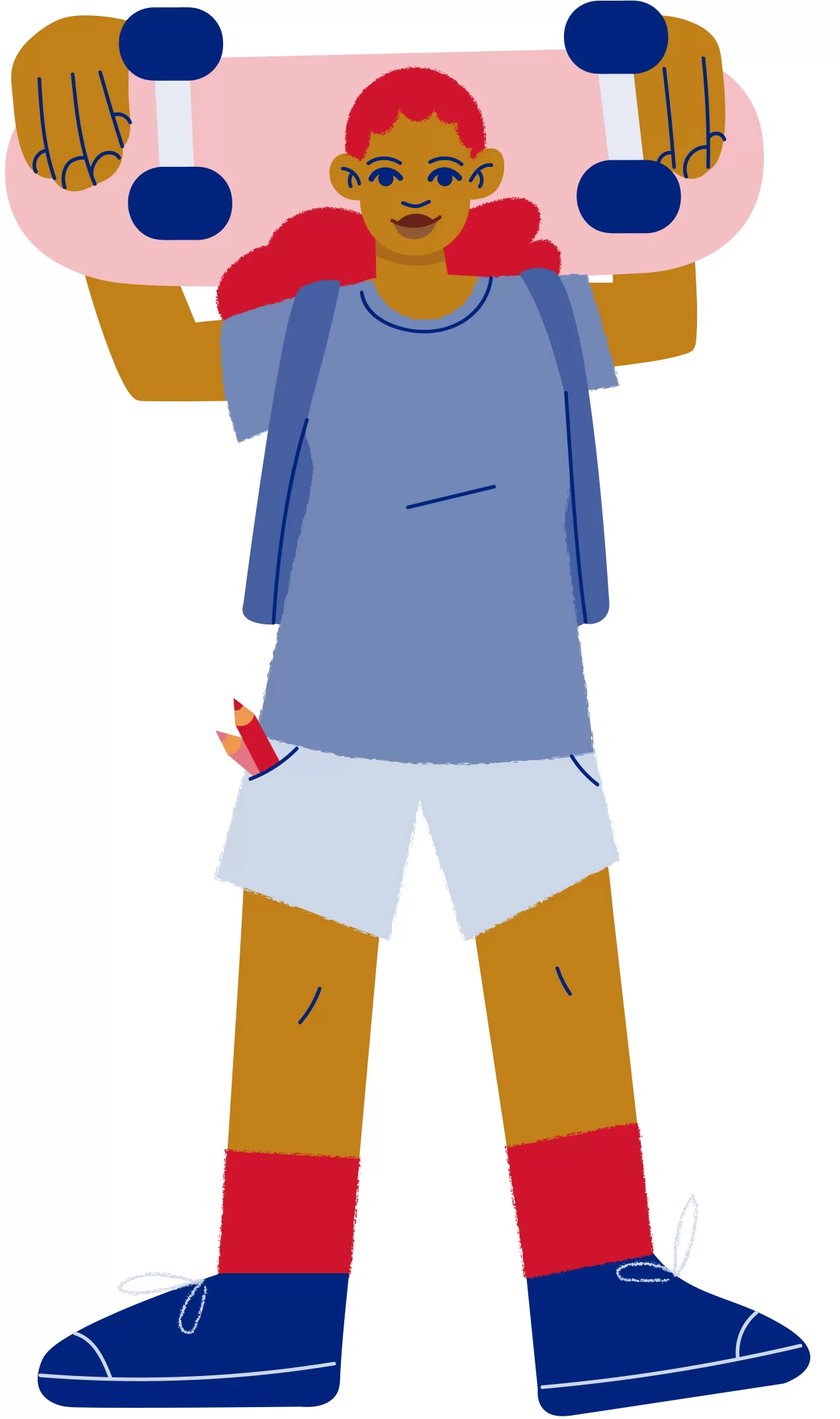Education as a dream and freedom

“The true freedom of a people is to be able to tell its own story”
The title of this text is a tribute to Aparecida Mendes, a quilombola from Conceição das Crioulas, who has a Master’s degree in Sustainability with Traditional Peoples and Territories from the University of Brasília (UNB) and former president of the Quilombola Association of Conceição das Crioulas (AQCC). Cida, as she is called rescuing butne of the popular educators in the project “Franciscas, Marias and Dandaras: owners of their destinations”, which always reinforced the importance of not only rescuing, but honoring and celebrating the stories of her people.
Browsing through her master’s dissertation [1], we find, in as early as chapter 1, the subtitle “a late but perennial path: education as a dream and freedom”. Here, she narrates her childhood in the quilombo of Conceição das Crioulas and her relationship with the municipal school, José Néu de Carvalho, which was the only one in the region for years. When reading the story, we were sure that the common thread to talk about quilombola education, territory and political articulation could only be her.
Cida finished the 4th grade of primary education in 1983 at age 12, the highest level of formal education that most of the community had access to at that time. To study further, it was necessary to migrate to Salgueiro in Pernambuco state, a difficult move for two reasons: 1) Financial. Most families could not afford housing, food and transportation. 2) Racism. Studying in Salgueiro meant leaving the “safety” that the quilombo provided, and to face alone, from a very early age, the heavy burden of racial discrimination.
“I realised years later that it was not a specific problem, but a structural intention that kept us in a condition of sub-citizenship, since the same society that says that “to be someone in life, one has to have formal education”, is the one that creates a set of difficulties that make access to this right unfeasible.” (Aparecida Mendes, 2019, p. 32)
It was in 1995, more than a decade after the interruption of a dream, that Cida returned to the classroom to finish her studies, using quilombola education as the basis for mapping her path to liberation. A story that we will discuss below, in summarised form.
From Dream to Freedom
The leaders of Conceição das Crioulas understand that in addition to the absence of a school building, the problem was also formed by the type of education offered in the quilombo. And so, still in the 1980s, the community prioritised their fight to extend primary education from the 4th to the 8th grade, based on an active, dialogical, critical and participatory method (Márcia Jucilene do Nascimento, 2017, p. 52). In 1995, the Professor José Mendes Municipal School [2] was inaugurated, providing the possibility for young people to start and finish their studies without interruption, while for older residents, as was the case of Cida, the hope of restoring an interrupted dream.
If before, formal education was used as an instrument of oppression, the recognition and appreciation of local knowledge, led by experienced people from the community who transcended the school walls, changed this reality, turning education into an instrument of struggle for freedom and quality of life for the quilombola population.


A collective call for an anti-racist education
Law 10639 of 2003 [3] made the teaching of African and Afro-Brazilian history and culture mandatory in public and private primary and secondary education establishments, representing an important achievement of the black movement. Even with the challenges encountered in its implementation, the legislation opened important paths for the debate and construction of practices in favour of a democratic and anti-racist formal education.
In the state of Pernambuco, for example, the Letter of Principles of Quilombola Education in Pernambuco was created. It was a joint effort by the State Commission for Quilombola Communities and the Luiz Freire Cultural Centre (CCLF) which consulted several communities during 2007 and 2008 in order to discuss the schools they had and the ones they wanted. In the document that formalises this work, the CCLF talks about the importance of understanding that “in traditional communities, the school is not the only space to carry out learning” but reinforces the need for appropriation of school spaces so that they serve the interests of the communities in which they are embedded.
To know and follow the history of the Black Movement through education is to understand that there is no ready-made model, but that certain resources are present in practically all realities, whether in rural areas such as Conceição das Crioulas, or in large urban centres. Whether reading the dissertation by Aparecida Mendes, Márcia Nascimento, Givânia Silva, or reading the books by bell hooks, the main aim is to build a collective and truly respectful space, capable of transforming the classroom into a strengthening environment for self-esteem of young people and black children [4].
Cida, Lourdinha, Valdeci, Márcia, Givânia, Fabiana and many other women from Conceição das Crioulas teach us the vitality of knowing where we come from and, above all, how mastering one’s own history, culture and values is still a privilege of whiteness, achieved with the erasure of black history, in which formal education was an accomplice for centuries.
And here, to finish off, another serving of Conceição’s doses of wisdom.
I believe that history does not stop and at every moment it demands that we are always learning. […] And then to say that all this also satisfies me, because it is the result of all this joint struggle of the community. So, it is true that we are always challenging. Challenging the curricula, challenging the difficulties that are immense, you know. But also, always proposing that people need to be in the classroom to always be learning, they need to always be looking. And of course, questioning and denouncing any form of government or interruption of people’s right to education. And then I would like to remember a phrase that I always think about: not thinking about education exclusively, but we can propose an education that includes people, where people value people, where people map their own destiny. I don’t think that an education today is to pay back what they did to the black people throughout their time, but rather to be able to say there is so much wealth that was massacred, oppressed by the dominant power of this country. So this little seed of experience of freedom satisfies me here. (João Alfredo, quilombola leader of Conceição das Crioulas, in August 2016)